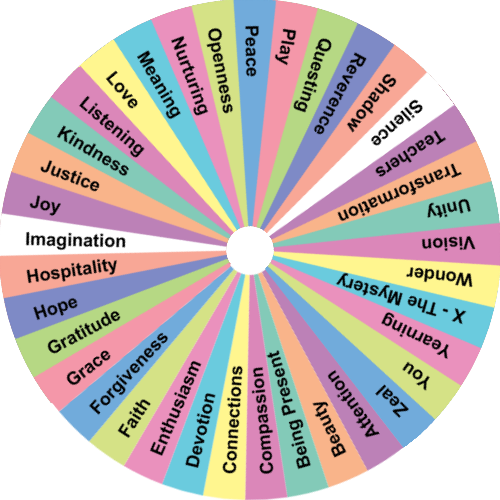Spirituality: What is It?
Spirituality as Becoming Fully Alive
“Sometimes people get the mistaken notion that spirituality is a separate department of life, the penthouse of our existence. But rightly understood, it is a vital awareness that pervades all realms of our being. Someone will say, “I come alive when I listen to music,” or “I come to lie when I garden, or “I come alive when I play golf.” Wherever we come alive, that is the area in which we are spiritual. And then we can say: “I know at least how one is spiritual in that area.”
To be vital, awake, aware, in all areas of our lives is the task that is never accomplished, but it remains the goal."
- David Steindl-Rast, The Music of Silence, as cited in Spirituality and Practice
To be vital, awake, aware, in all areas of our lives is the task that is never accomplished, but it remains the goal."
- David Steindl-Rast, The Music of Silence, as cited in Spirituality and Practice
Let's say for the moment that spirituality is simply the activity of becoming as fully alive as possible, within oneself and in relation to others, in ways that are emotionally satisfying, and that are wise, compassionate, and inwardly free.
Above you will see some of the modes of spirituality as identified by Frederic and Mary Ann Brussat of Spirituality and Practice. These modes are available to believers, non-believers, and the vast majority who are somewhere in between. They can be part of a secular spirituality or a religious spirituality. They include but are more than emotional intelligence: knowing your own feelings and the feelings of others. For many of us, this simple idea -- that spirituality is the activity of being fully alive and that full aliveness has many modes -- is sufficient. But academics and policy makers may be interested in a more robust understanding of spirituality that is informed by cognitive psychology, evolutionary biology, culture studies, brain science, mindfulness studies, philosophy, anthropology, and the academic study of religion, Fortunately, a think tank in London - The RSA -- offers it.
Above you will see some of the modes of spirituality as identified by Frederic and Mary Ann Brussat of Spirituality and Practice. These modes are available to believers, non-believers, and the vast majority who are somewhere in between. They can be part of a secular spirituality or a religious spirituality. They include but are more than emotional intelligence: knowing your own feelings and the feelings of others. For many of us, this simple idea -- that spirituality is the activity of being fully alive and that full aliveness has many modes -- is sufficient. But academics and policy makers may be interested in a more robust understanding of spirituality that is informed by cognitive psychology, evolutionary biology, culture studies, brain science, mindfulness studies, philosophy, anthropology, and the academic study of religion, Fortunately, a think tank in London - The RSA -- offers it.





